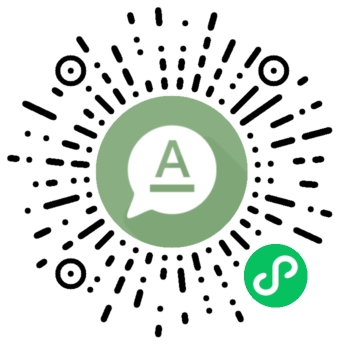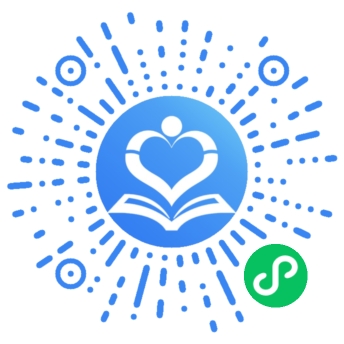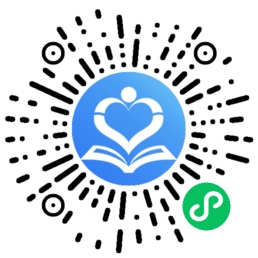中共党史专业介绍
中国共产党历史专业属于法学门类,政治学一级学科,该专业主要研究中国共产党的历史发展、理论政策与实践,探索中国共产党领导中国革命、建设、改革和党的建设的历史经验教训,揭示中国共产党执政规律、社会主义建设规律、人类社会发展规律。
英语单词分类 轻松记单词
1.应该;应当
You useshould when you are saying what would be the right thing to do or the right state for something to be in.
e.g. Ishould exercise more...
我应该多锻炼一些。
e.g. The dietshould be maintained unchanged for about a year...
这样的饮食应保持约一年不变。
2.(表示给出指示或公布官方命令)应该,必须
You useshould to give someone an order to do something, or to report an official order.
should什么意思
e.g. All visitorsshould register with the British Embassy...
所有游客都必须到英国大使馆登记。
e.g. The European Commission ruled that British Aerospaceshould pay back tens of millions of pounds.
欧洲委员会裁定英国航空航天公司应该偿还数千万英镑。
3.(表示与说话者的意愿相反)本应
If you say that somethingshould have happened, you mean that it did not happen, but that you wish it had. If you say that somethingshould not have happened, you mean that it did happen, but that you wish it had not.
e.g. Ishould have gone this morning but I was feeling a bit ill...
今天早晨我本应该走的,但是我觉得有点不舒服。
e.g. Ishould have been in the shade like all the other tourists, then I wouldn't have got burned...
我本应该像其他旅游者一样呆在阴凉处的,那么我就不会晒伤了。
4.(表示预期或可能性)应该会,可能
You useshould when you are saying that something is probably the case or will probably happen in the way you are describing. If you say that somethingshould have happened by a particular time, you mean that it will probably have happened by that time.
e.g. Youshould have no problem with reading this language...
阅读这种语言你应该没问题。
e.g. The votersshould by now be in no doubt what the parties stand for...
选民们现在应该确切知道各党派的主张了。
5.(用于疑问句中表示征求意见、同意或咨询情况)可以,应该
You useshould in questions when you are asking someone for advice, permission, or information.
e.g. should I or shouldn't I go to university?...
我该不该去上大学呢?
e.g. Whatshould I do?...
我应该怎么做?
6.(通过假设自己处于对方立场会怎么做来提出建议)应该,可以,会
You say 'I should', usually with the expression 'if I were you', when you are giving someone advice by telling them what you would do if you were in their position.
should在线翻译
e.g. Ishould look out if I were you!
如果我是你,我会小心的。
e.g. James, Ishould refuse that consultancy with Shapiro, if I were you...
詹姆斯,如果我是你,我就会拒绝向夏皮罗咨询。
7.(用在条件从句中表示事件发生的可能性)将要,假定要
You useshould in conditional clauses when you are talking about things that might happen.
e.g. If youshould be fired, your health and pension benefits will not be automatically cut off...
如果你被解雇,你的医疗和养老保险金不会自动中断。
e.g. should you buy a home from Lovell, the company promises to buy it back at the same price after three years...
如果你从洛弗尔公司买房子,该公司承诺3年后以同样的价格再购回。
8.(用在由 that引导的从句中,放在某些动词、名词和形容词之后,表示将来的事件或情况)应该,能够,竟然会
You useshould in 'that' clauses after certain verbs, nouns, and adjectives when you are talking about a future event or situation.
e.g. He raised his glass and indicated that Ishould do the same...
他举起了杯子并且示意我也应该这样做。
e.g. I insisted that weshould have a look at every car...
我坚持我们每辆车都应该看一下。
9.(与第一人称连用,表示没有把握)会,可能
You useshould in expressions such asI should think andI should imagine to indicate that you think something is true but you are not sure.
should什么意思
e.g. Ishould think it's going to rain soon...
我想可能马上要下雨了。
e.g. 'I suppose that was the right thing to do.' — 'Ishould imagine so.'...
“我认为那样做是对的。”——“我想是吧。”
10.(与第一人称连用表示客气的请求等)想要,将会
You useshould in expressions such asI should like andI should be happy to show politeness when you are saying what you want to do, or when you are requesting, offering, or accepting something.
e.g. Ishould be happy if you would bring them this evening...
如果今晚你将他们带来的话,我会很高兴。
e.g. 'Ishould like to know anything you can tell me,' said Kendal...
“只要是你能告诉我的,我都会洗耳恭听,”肯德尔说。
11.(强调所经历的事有趣、令人震惊等)实在该,真该,真应当
You useshould in expressions such asYou should have seen us andYou should have heard him to emphasize how funny, shocking, or impressive something that you experienced was.
should
e.g. Youshould have heard him last night!
昨晚你真该听听他所说的。
e.g. Youshould have seen him when he first came out — it was so sad...
你真应该看看他第一次出现时的样子,真让人难过。
12.(用在由who,what等引导的疑问结构中,后接but,强调某件事令人惊讶或震惊)居然
You useshould in question structures which begin with words like 'who' and 'what' and are followed by 'but' to emphasize how surprising or shocking a particular event was.
should的解释
e.g. I'm making these plans and whoshould I meet but this blonde guy and John.
我正在制订这些计划,没想到这时候居然遇上这个金发的家伙和约翰。
You should take advantage of it.
你应该好好利用这个机会。
It should cost roughly 10.
这大约10英镑。
You should give it a try.
你应该试一试。
That he should speak to you like that is quite astonishing.
他竟然这样对你说话
I knew if I kept at it I should succeed.
我知道如果我坚持下去就会成功。
You shouldn't drink and drive.
你不该酒后驾车。
He should have been more careful.
他应当更小心点儿才是。
A present for me? You shouldn't have ! (= used to thank sb politely)
给我的礼物?您太客气了!
You should stop worrying about it.
你该不要再为此事担忧了。
should I call him and apologize?
我是不是应该打电话向他道歉?
I should wait a little longer, if I were you .
假如我是你的话,我会再等一会儿。
(ironic)'u2018She doesn't think she'll get a job. 'u2019 'u2018She should worry, with all her qualifications (= she does not need to worry) . 'u2019
“她担心找不到工作。”“她那么好的条件,还担心什么呀。”
I should exercise more...
我应该多锻炼一些。
The diet should be maintained unchanged for about a year...
这样的饮食应保持约一年不变。
All visitors should register with the British Embassy...
所有游客都必须到英国大使馆登记。
The European Commission ruled that British Aerospace should pay back tens of millions of pounds.
欧洲委员会裁定英国航空航天公司应该偿还数千万英镑。
I should have gone this morning but I was feeling a bit ill...
今天早晨我本应该走的,但是我觉得有点不舒服。
I should have been in the shade like all the other tourists, then I wouldn't have got burned...
我本应该像其他旅游者一样呆在阴凉处的,那么我就不会晒伤了。
You should have no problem with reading this language...
阅读这种语言你应该没问题。
The voters should by now be in no doubt what the parties stand for...
选民们现在应该确切知道各党派的主张了。
should I or shouldn't I go to university?...
我该不该去上大学呢?
What should I do?...
我应该怎么做?
I should look out if I were you!
如果我是你,我会小心的。
James, I should refuse that consultancy with Shapiro, if I were you...
詹姆斯,如果我是你,我就会拒绝向夏皮罗咨询。
If you should be fired, your health and pension benefits will not be automatically cut off...
如果你被解雇,你的医疗和养老保险金不会自动中断。
should you buy a home from Lovell, the company promises to buy it back at the same price after three years...
如果你从洛弗尔公司买房子,该公司承诺3年后以同样的价格再购回。
He raised his glass and indicated that I should do the same...
他举起了杯子并且示意我也应该这样做。
I insisted that we should have a look at every car...
我坚持我们每辆车都应该看一下。
I should think it's going to rain soon...
我想可能马上要下雨了。
'I suppose that was the right thing to do.' 'u2014 'I should imagine so.'...
“我认为那样做是对的。”——“我想是吧。”
I should be happy if you would bring them this evening...
如果今晚你将他们带来的话,我会很高兴。
'I should like to know anything you can tell me,' said Kendal...
“只要是你能告诉我的,我都会洗耳恭听,”肯德尔说。
You should have heard him last night!
昨晚你真该听听他所说的。
You should have seen him when he first came out 'u2014 it was so sad...
你真应该看看他第一次出现时的样子,真让人难过。
I'm making these plans and who should I meet but this blonde guy and John.
我正在制订这些计划,没想到这时候居然遇上这个金发的家伙和约翰。
健康和社会问题
should什么意思
A:You reallyshould stop (smoking/ drinking/ doing drugs).
你真的应该(戒烟/戒酒/戒毒)了。
B:I know.
我知道。
进修
A:Tell me about (it/ your courses/ your plans).
跟我说说(这事/你的课程/你的计划)。
B:Whereshould I start?
我应该从哪儿开始呢?
假期
B:I’ve been so (busy/ stressed out/ overwhelmed) lately.
我近来(一直很忙/压力很大/负荷很大)。
A:Youshould take it easy.
你应该放松一些。
But theyshould save their writing in time on the computer because it may stop working suddenly.
他们应该把他们写的东西及时保存在电脑上,因为它可能会突然停止工作。
2020河北省卷
Firstly, weshould think about the health care experience as a whole.
首先,我们应该从整体上考虑医疗保健体验。
2020北京市卷
When we do something difficult in our life, weshould learn from the rabbit.
当我们在生活中做一些困难的事情时,我们应该向兔子学习。
2020锦州市卷
So, if you head downhill, and follow any H2O you find, youshould eventually see signs of people.
所以,如果你下山,顺着你找到的水,你最终会看到有人的迹象。
2019英语一
Thatshould create more collaborative endeavors and help to develop projects aimed directly at solving global problems.
这将会激发更多的合作努力,并有助于开发直接旨在解决全球性问题的项目。
2013英语一
For a generation, the collective doctrine has been that the sorting mechanism of societyshould be profit.
对于这代人来说,共同接受的信条一直是社会的分类机制应为利益。
2015英语一
上一个:sufficient
下一个:show
四川高考志愿填报方式:1、进入页面;2、修改密码;3、填报须知;4、查看个人基本信息;5、志愿类别选择;6、填写志愿和修改志愿;7、填写或修改志愿结束后,单击页面底部的[保存并提交]按钮,则所填写的志愿数据将得到保存,保存即表示该批次志愿已经提交。
高考成绩一般都会在考后15天左右公布,不过不同省份查询时间有所差别,具体以各省份发布时间为准。并且全国各省份高考成绩公布时间有所不同,不全在同一天,但绝大部分省市都集中在6月24日、6月25日两天公布高考成绩,有些省份会更早一点。
中国共产党历史专业属于法学门类,政治学一级学科,该专业主要研究中国共产党的历史发展、理论政策与实践,探索中国共产党领导中国革命、建设、改革和党的建设的历史经验教训,揭示中国共产党执政规律、社会主义建设规律、人类社会发展规律。
小学教育专业属于教育学门类、教育学一级学科,是我国教师教育体系的重要组成部分。小学教育专业坚持学高为师、身正为范。其主要培养德、智、体、美、劳全面发展,具备专业化的小学教师素养,能在小学及相关行业从事教育、教学和管理等方面工作的复合型人才。
钢琴伴奏作为一门中国普通高等学校的专科专业,属于文化艺术大类中的表演艺术类,修业年限为三年。该专业的目的是培养了解钢琴伴奏的基本理论知识和方法,具备较好的音乐创造能力,从事钢琴伴奏、艺术指导、钢琴演奏、教学辅导等工作的高素质技术技能人才。
影视多媒体技术专业是一门专科专业,属于新闻传播大类中的广播影视类。开设该专业的目的是培养全面发展,具有良好职业道德和人文素养,掌握影视多媒体技术基本知识和技能,具备影视后期制作、影视包装设计能力,从事影视编辑的高素质技术技能人才。
虚拟现实技术应用是一门互联网专业,属于电子与信息大类中的计算机类,基本修业年限为三年。专业主要研究仿真技术与三维计算机图形技术等方面基本知识和技能,具备虚拟现实软硬件平台设备搭建,从事虚拟现实、开发、调试等工作的高素质技术技能人才。
更多内容
关注微信小程序
学路英语小程序
 微信扫一扫,加入小程序
微信扫一扫,加入小程序
学路学习小程序
 微信扫一扫,加入小程序
微信扫一扫,加入小程序
学路高考小程序
 微信扫一扫,加入小程序
微信扫一扫,加入小程序
学路学习APP
 扫一扫,下载app
扫一扫,下载app